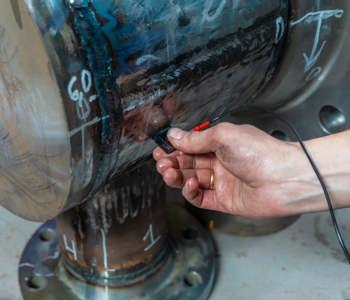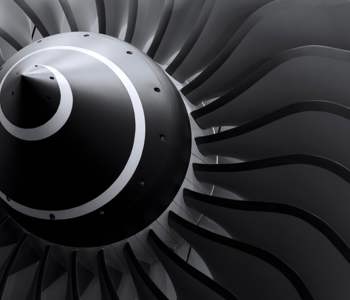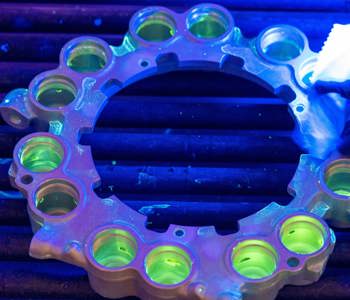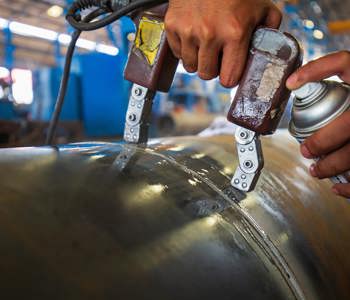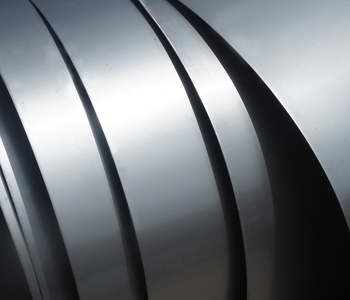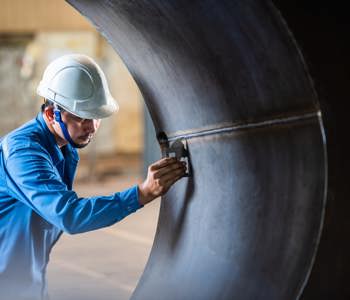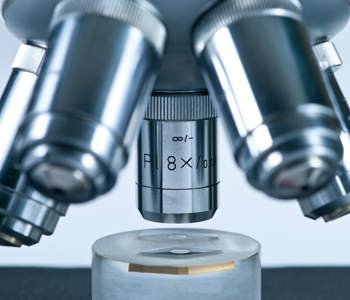At Hansen Aerospace, we have over 40 years of experience as a trusted, US-based NDT testing provider and are recognized for our precision, reliability, and outstanding service. All backed by a flawless audit record.
Types of Non-Destructive Testing Services We Offer
What is Non-Destructive Testing (NDT)?
Non-destructive testing, or NDT, is a group of inspection techniques used to evaluate the condition of materials and their properties without damaging the material.
Also known as NDE non-destructive testing, these methods allow us to check for cracks, voids, and other internal surface-level flaws that could compromise the performance and reliability of a material.
Our non-destructive inspection services help ensure high standards of quality control, reduce the risk of failure, and support full compliance with industry regulations.

Why non-destructive testing is important
Non-destructive testing is crucial in high-reliability industries, such as aerospace, where failures can have catastrophic consequences. NDT testing helps to identify material flaws and inconsistencies early in the production process. This can help to reduce costly delays, in service failures and safety concerns.
NDT inspection carried out by a qualified, experienced NDT inspector, such as Hansen Aerospace, supports traceability, quality assurance, lifecycle management of critical components and ensures you meet all required industry standards and regulations.

Non-Destructive Testing Techniques
At Hansen Aerospace, our experienced team applies the most effective non-destructive testing techniques based on the specific requirements of each project.
As a certified NDT laboratory, we consistently meet the highest industry standards, delivering reliable, audit-approved non-destructive testing techniques that support critical aerospace and defense applications.

NDT Testing Methods for Material Evaluation
At Hansen Aerospace, we apply both contact and non-contact NDT testing methods to assess products during and after production.
These methods include, but are not limited to:
- Ultrasonic testing
- Penetrant testing
- Magnetic particle testing
- Visual inspection

NDT Inspector Qualifications and Expertise
- Certified NDT Inspectors
- 4 Decades of Experience in Performing Non-Destructive Inspections
- NADCAP NDT Certificate
- AQS (AC7004) certificate
- NADCAP Chem Processing Certificate

Why Choose Hansen Aerospace?
Availability
We provide 24/7/365 access to our management team and senior executives, ensuring we’re always available to support our customers.
Partnerships
We have a proven ability to grow alongside our customers, proactively assessing their future capacity needs and ensuring a long-term, successful collaboration.
Experience and Expertise
With unmatched ultrasonic testing expertise, we are proud to have the largest concentration of IUT testing capacity for jet engine parts in the world, setting us apart as a leader in the industry.
Service
We are committed to providing exceptional customer service, as consistently praised by our clients. As a US-based NDT house, we strive to exceed expectations with every interaction.
Quality and Trust
Our commitment to quality is unwavering. With 4 decades of excellence, we have consistently passed every audit and maintained all necessary certifications, reinforcing the trust our customers place in us.
Non-Destructive Testing FAQs
What is NDT?
NDT stands for non-destructive testing. It refers to inspection techniques used to evaluate critical components and materials without causing damage to the component.
What does NDE stand for?
NDE non-destructive testing, stands for non-destructive examination and is another term used interchangeably with NDT, especially in aerospace and defense.
What is NDT certification?
NDT certification confirms that an organization or technician is qualified to perform an NDT inspection according to standards such as NA 410 or ASNT.
What are non-destructive testing methods?
There are numerous non-destructive testing methods including ultrasonic testing, magnetic particle testing, penetrant testing, visual inspection, plus many others.
How many types of common non-destructive test are there?
There are several common non-destructive test methods including ultrasonic, penetrant, magnetic, braze and blade inspection, and many more.

